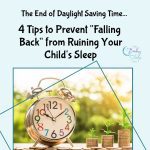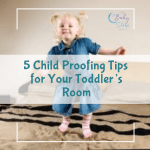
Most children with Autism Spectrum Disorder (ASD) have difficulty sleeping. Most parents of children with Autism also have sleep challenges. One study showed that parents of children with ASD get less sleep, less quality sleep and wake up earlier than parents of neuro-typical children or children without ASD.
You probably aren’t surprised, which is why you are reading this article in the first place! I’m here to tell you that not only are you not alone. . . you are actually among the majority.
These sleep problems in children most often take the form of difficulty falling asleep at bedtime and difficulty sleeping through the night. I once had a client whose child was so frustrated by his ceiling (the white absence of picture) that he didn’t sleep well (had a lot of trouble falling asleep) until they painted a mural on it. Formally, insomnia is the most common sleep challenge among children with ASD.
No one knows the exact cause of extra sleep difficulties among children diagnosed with ASD. It is likely a combination of being unable to recognize cues that prompt sleep; being over stimulated at sleep times; anxiety related to sleep or the dark; being overly sensitive to noises in the house that you hear when lying quietly in bed but might not otherwise notice much or pay attention to; and research suggests that hormones that promote sleep (such as melatonin) may not be functioning the same way as they do in neuro-typical children.
Also, interestingly, research is also noting the possibility that children with ASD might not need as much sleep as other children. So, in some cases, it’s possible the trouble falling asleep is genuinely not being tired enough.
Not getting enough sleep has consequences. We all know that! When children with ASD aren’t getting enough sleep regularly, there has been shown to be a connection with, and increase in, the following(2):
- Aggression
- Depression
- Hyperactivity
- Increased behavioral problems
- Irritability
- Poor learning and cognitive performance
Here is what you can do to improve sleep in your amazing child with ASD:
-
Provide a comfortable sleep setting.
Set the stage for sleep success by making sure the room is a comfortable temperature for their preference and their pajamas are friendly and feel “fine” on their skin (loose fit, snug fit, various textures). Use black-out blinds, and if you use a night light use a dim one with an amber glow that stays on all night. Be sure the laundry detergent fragrance you use to wash the sheets isn’t offending to your child (what pleases your nostrils as “flower fields” might hit your child’s as a smelly bog). Consider the background noise in the house and decide if playing white noise through the night might be helpful.
-
Establish a consistent relaxing routine.
Use visual schedules for younger children if helpful. The routine should be the same every night and the steps of the routine should make sense and flow well together. Many children with ASD thrive on boundaries and structure. Having a consistent bedtime routine is a great way for them to feel empowered. There are no surprises and they know what comes next.
-
Fix your schedule.
Ensure bedtime is being offered at an appropriate time so you can ensure they are tired enough to sleep. Being over-tired and not tired enough can often look the same after all. To ensure the best bedtime, offer it based on the recommended amount of time between nap and bedtime, which is 5-6 hours for children 2 years and older, until your child is no longer napping. For additional information about schedules for babies and toddlers and the amount of suggested time between naps, be sure to follow an age-appropriate sleep schedule.
-
Help your child fall asleep independently.
That’s what The Baby Sleep Site® is here to help you do. Everyone wakes up many times throughout the night. Without knowing it, most people wake briefly to check or see if their sleep environment is “right.” Is my pillow in a good position? Is everything like it should be? When your child with ASD, especially, cannot fall asleep alone, then each time he/she wakes up, it is hard to fall back asleep without whatever it took to help him/her fall asleep in the first place. If your child learns to fall asleep alone, most of the time this translates to them being able to fall back asleep in the middle of the night and therefore better rested.
-
Maintain healthy daytime behaviors.
Offer naps at needed and appropriate times. Offer meals and snacks at set times throughout the day. Avoid foods or drinks known to be stimulating at the wrong times (high-sugar snacks an hour before you hope your child will be asleep, for example). Expose your child to light upon waking up in the morning to get their brains in “day” mode and attempt to stop making sleep hormones. Offer enough physical activity throughout the day so that your child will be tired at sleep times. This is an important one since many young children with ASD also deal with hyperactivity. Targeting a healthy dose of physical activity early in the day can help tremendously with your child settling more easily into sleep later.
The fact is, up to 80% of children with Autism have difficulty sleeping. The good news is there are things you can do to help this – and we’re here to help as well.
Hoping your child with Autism/ASD is on their way to better sleep!
Sources:
1. Meltzer LJ. Journal of Pediatric Psychology, 2008.
2. Sleep and Autism Spectrum Disorder (ASD). Carin Lamm, MD. https://www.autismspeaks.org/family-services/health-and-wellness/sleep. 10/24/17
3. Autism Research Institute. https://www.autism.com/sleeplessness_main. 10/24/2017
4. Autism Speaks Autism Treatment Network / Autism Intervention Research Network
5. Sleep Medicine Review. Sleep problems in autism spectrum disorders: Prevalence, nature, & possible biopsychosocial aetiologies. Amanda L. Richdale et. al.








